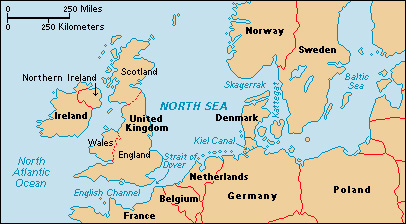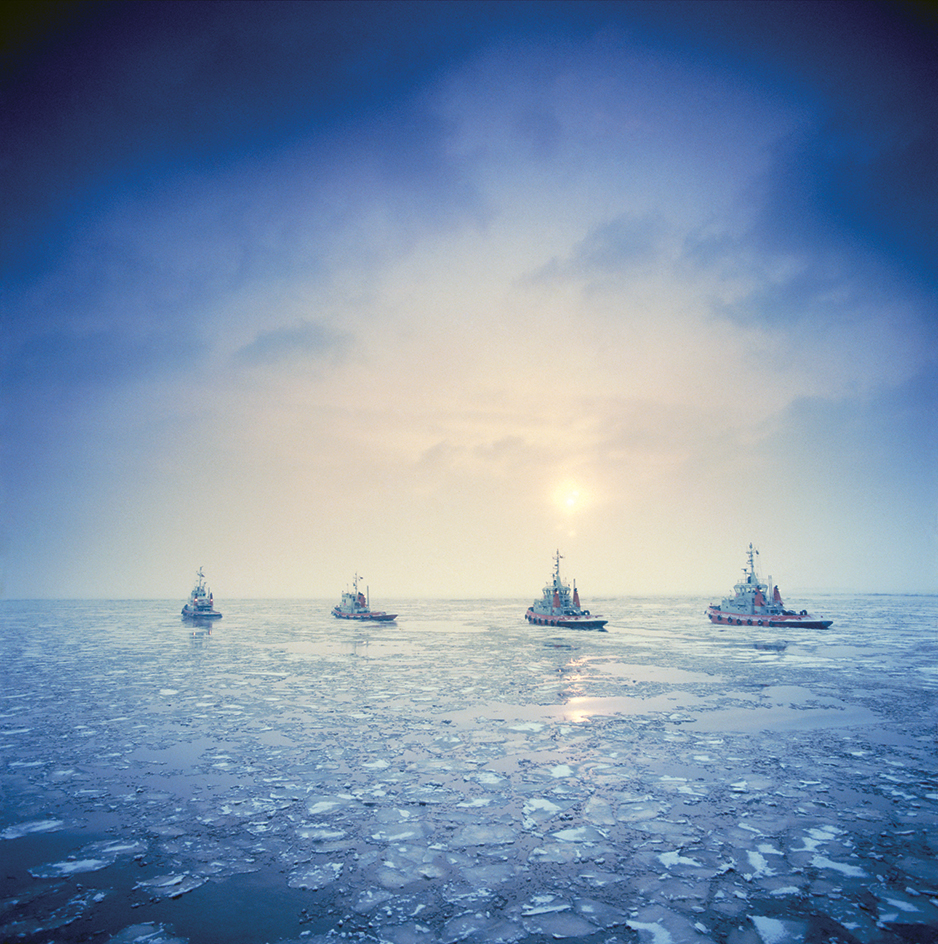North Sea is a wide arm of the Atlantic Ocean that lies between the island of Great Britain and the mainland of Europe. Seven nations—the United Kingdom, Norway, Denmark, Germany, the Netherlands, Belgium, and France—border the sea. The North Sea is a major trade and transportation route. It is also an important source of petroleum, natural gas, and fish.

The North Sea covers 218,178 square miles (565,078 square kilometers). It extends almost 600 miles (960 kilometers) from north to south and about 360 miles (580 kilometers) from west to east. It has an average depth of 100 feet (30 meters) in the south and 400 feet (120 meters) in the north. The Strait of Dover and the English Channel connect the North Sea with the Atlantic Ocean. Skagerrak, an arm of the sea, links it with the Strait of Kattegat and the Baltic Sea. The Kiel Canal also connects the North and the Baltic seas.
Weather conditions in the North Sea are unpredictable, especially in winter. Winds of up to 100 miles (160 kilometers) an hour and severe storms sometimes occur, making navigation extremely dangerous.
In the 1960’s, vast amounts of petroleum and natural gas were found under the North Sea. Today, the United Kingdom and Norway get large quantities of petroleum from the area. Natural gas is piped ashore to the United Kingdom and Germany.
The fishing grounds of the North Sea rank among the richest in the world. They supply about 3 million tons (2.7 million metric tons) of fish annually. Fish caught in the North Sea include cod, haddock, herring, mackerel, pilchard, plaice, sole, and whiting. The North Sea also provides many kinds of shellfish. Overfishing, however, has depleted the stocks of many fish.
The North Sea is one of the world’s most important waterways for commercial activity. Its many major ports include London, England; Hamburg, Germany; Amsterdam and Rotterdam, the Netherlands; Antwerp, Belgium; and Dunkerque, France. Increased air travel, though, has dramatically reduced ferry travel across the sea.

The North Sea has been used for trade and transportation since ancient times. Its position made it important during World War I (1914-1918) and World War II (1939-1945). During World War I, the United Kingdom controlled the North Sea and largely prevented the German Navy from using it as a route to the Atlantic Ocean. During World War II, Germany controlled the part of the sea between Norway and France. But the United Kingdom controlled the English Channel and the northern approaches to the sea, allowing Allied ships to use the waterway.
